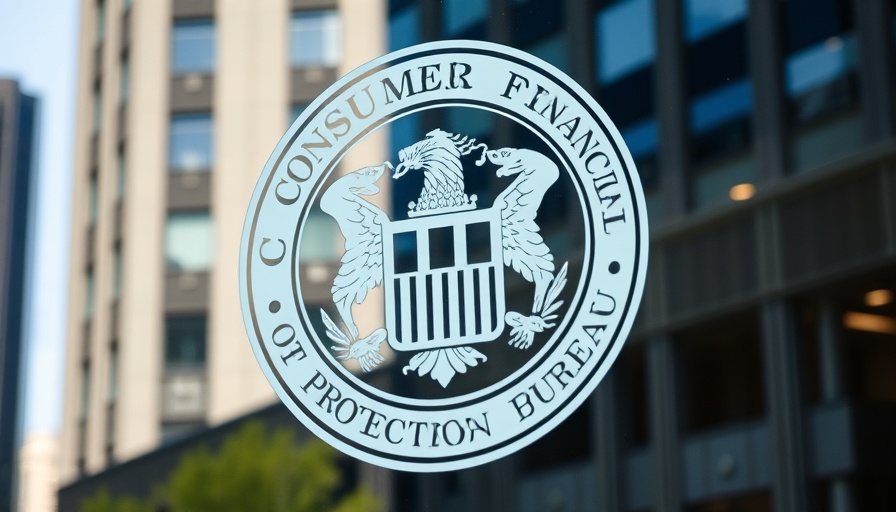
CFPB Cuts: A Critical Blow to Consumer Protections
On April 17, 2025, a significant reduction in workforce occurred at the Consumer Financial Protection Bureau (CFPB), where over 1,400 employees were let go. This drastic action effectively shrank the agency to just 200 staff members, a move that many experts describe as an attempt to undermine consumer protections established following the 2008 financial crisis.
Understanding the Impact of CFPB's Role
Founded by the Dodd-Frank Act in 2010, the CFPB was designed to safeguard consumers against unfair financial practices. It claims to have brought about $19.7 billion in consumer relief during its existence. The recent employment cuts are raising serious concerns about the agency's ability to fulfill its mission. Areas such as medical debt and student loans, which are now being deprioritized, are crucial for many consumers who rely on federal oversight to protect them from predatory practices.
A Response from Dissatisfied Employees
A terminated CFPB worker expressed, “This affects literally every office to at least some extent, with some completely wiped out.” This sentiment highlights deep dissatisfaction among remaining employees, who fear that the staff reductions will hinder the bureau's essential services.
Political Motivations and Implications
Calls for the CFPB's dismantlement have especially intensified among conservative circles, with high-profile figures like Elon Musk advocating for its elimination. The Project 2025 chapter describes the bureau as "damaging and unaccountable," underscoring a politically charged effort to dismantle consumer protections. As the agency becomes increasingly marginalized, it's crucial to reassess its potential repercussions on consumers nationwide.
What's Next for Consumer Protection?
The current trajectory raises questions: how will this decline in staffing affect the agency's role in protecting consumers? The future seems precarious, and with significant powers being stripped from the CFPB, many fear an era where consumer welfare takes a backseat to political agendas. The ongoing narrative suggests that consumer financing matters may now encounter increased risks and uncertainties.
 Add Row
Add Row  Add
Add 




Write A Comment